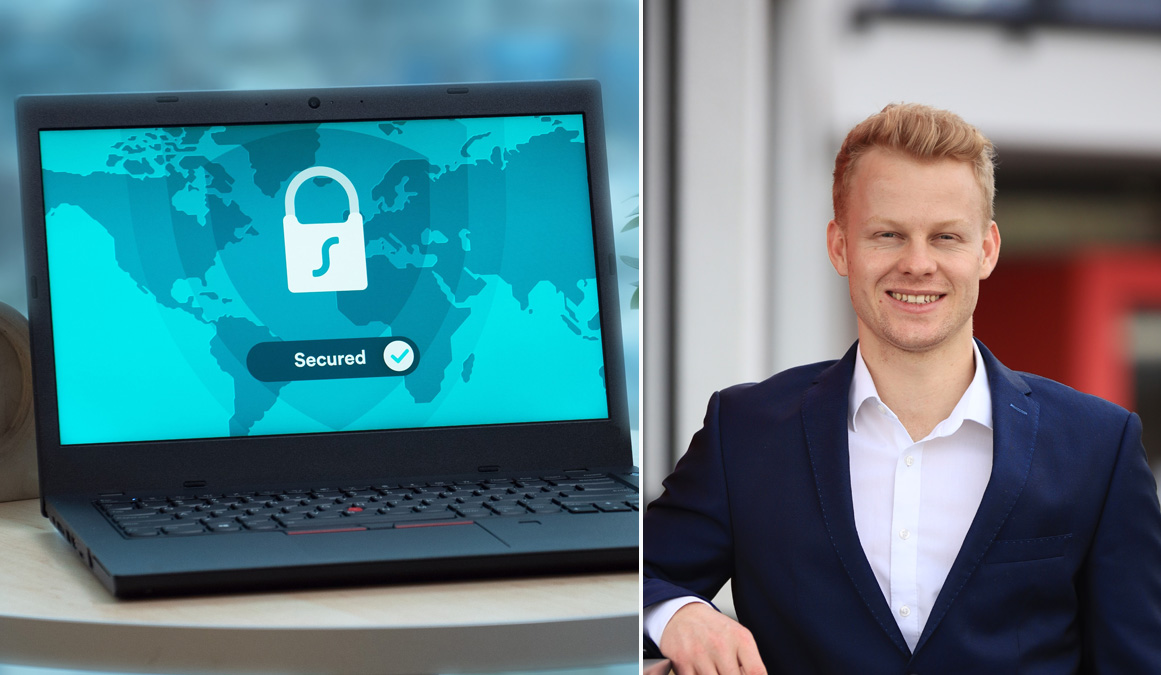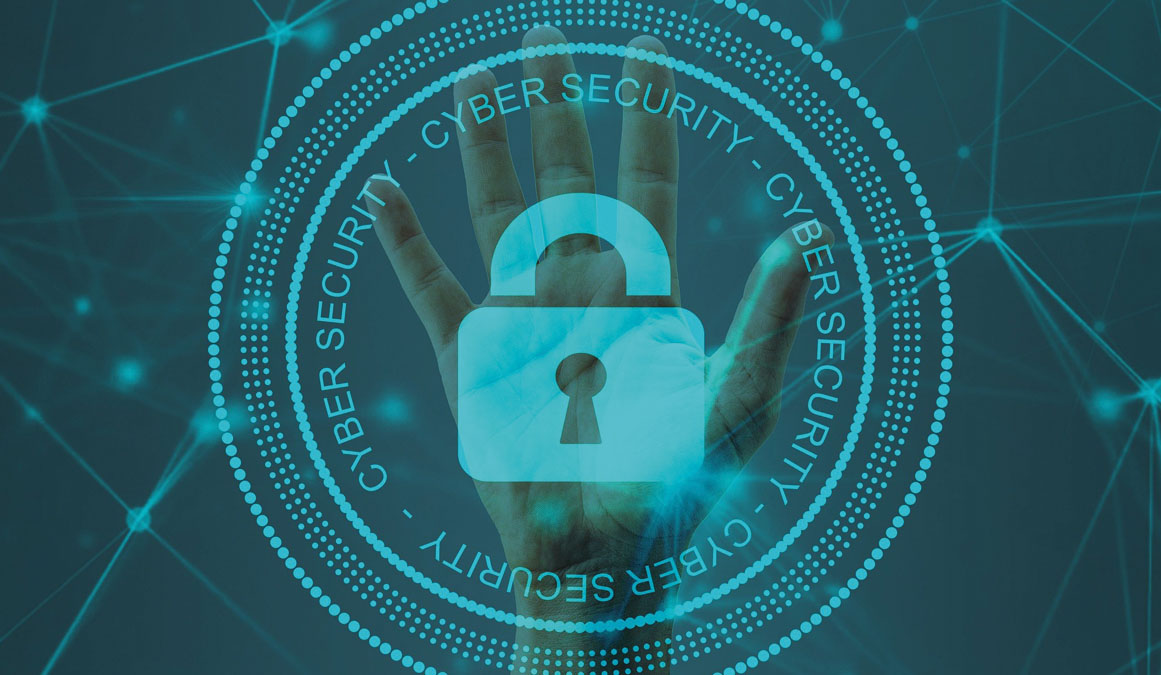Cyber Risks: What Threatens You and How You Can Protect Yourself
A cyber attack...it only happens to other people? This assumption can cost you dearly! Many companies are not covered against cyber crime adequately. Yet the losses have been increasing for years. In this article, we reveal where the greatest risks lurk and how you can protect yourself.
Cyber Risks As the Biggest Threat To Companies
According to the cyber damage report published by the insurance company Stoik in 2024, the threat of cyber attacks remains unbroken. Only the frequency of the various attacks has changed:
- Overall, the frequency of losses increased slightly from 3.8 to 4.3 per cent.
- Of the 5,000 reported losses, compromised emails and payment fraud account for the largest share. In addition to email and telephone scams, hacks of IT systems and attacks via third-party systems are also very popular with criminals.
- At 12.4 per cent, ransomware is on a slight downward trend, but still causes the most concern. After all, the consequences for companies are particularly serious - there is the threat of high ransom payments, business interruptions and a great amount of work to deal with the incident.

Find out how you can protect your data from unauthorised encryption in the article Ransomware Risk: How to Protect Your Business Against Becoming a Digital Hostage.
Protection Against Cyber Risks Through Cooperation
The increasing number of attacks on IT systems proves how many undiscovered security vulnerabilities exist in operating systems. Since even the manufacturers don't know that they exist, there are no patches available. This gives criminals an easy target.
In addition, the supplier and service sector is increasingly becoming the focus of hackers. As a result, companies, government authorities and experts need to work together even more closely. At the same time, new laws such as the NIS-2 Directive and DORA are increasing the requirements. They are intended to take account of the rapid technical development and bring the topic of cyber security into the modern age. Compliance is therefore not only important in order to be legally compliant - it is also becoming a competitive advantage.
However, this only works if companies have a modern IT infrastructure. They should be prepared to engage with new technologies such as artificial intelligence: Criminals also use AI for their scams.
You can prepare yourself better against the threat landscape with the following measures:
- Multifactor authentication (MFA)
- Duplicate payment authorisations
- Automated fraud detection for emails
- Extended logging
This proactive approach helps you to recognise attacks at an early stage.
The figures in this survey are a selective sample. They give an impression and are not representative of the entire market. You can find the entire Stoik study here: Cyber Damage Report 2024.
How To Minimise Cyber Risks
Cyber risks are numerous and increasing again. Here's what you can do:
- Outsource the hardware and software required to run your company to a separate data centre.
- Only choose products that are suitable for companies. Don't be satisfied with makeshift solutions. The money you may save initially will be lost threefold in the case of a cyber incident. You should only use new software applications after extensive testing.
- Keep redundant hardware on hand to better compensate for failures or, ideally, to avoid them altogether.
- Regularly back up your data to external storage media that are not linked to the rest of your infrastructure. This not only protects your data from unauthorised access, but also from harmful environmental influences such as fire or water.
- Equip yourself with firewalls and virus scanners to block unauthorised data traffic. Always keep all tools up to date and install updates regularly.
- Train your employees! Many cyber incidents do not necessarily occur due to criminal access from outside. They are often caused by (unconscious) incorrect behaviour on the part of staff.
cyber incidents are no longer limited to large corporations. You can find even more tips on how to protect your business here: Cyber Security for SMEs: How to Achieve Effective Safety Standards.
Insure Against Cyber Risks
Smaller companies in particular often think that they are not a worthwhile target for cyber criminals. However, numerous studies show that small and medium-sized companies in particular are increasingly being targeted by hackers. However, they are much less able to cope with the financial consequences of business interruptions, data protection penalties and so on than large corporations. Reason enough to protect yourself against cyber risks.
What a Good Cyber Insurance Provides
If you want to take out cyber insurance for your company, there are a few important points to bear in mind:
- The insurer should cover the cost of cleaning up and restoring your systems after a cyber attack. This also includes the costs of using third-party IT systems if you cannot maintain your operations in any other way.
- Your company’s image may also suffer as a result of a cyber attack, for example if customer data falls into the wrong hands. So a good cyber insurance should also pay the costs incurred for the appropriate PR.
- As mentioned at the beginning, blackmail attempts as part of hacking attacks have increased significantly. So payment of the ransom by the insurer (if all else fails) is a must.

Protection Against Cyber Risks With exali
No matter which Professional Indemnity Insurance you take out with exali: All cyber damage caused by your error affecting someone else is covered automatically.
You have the following option for coverage of cyber damage to your business:
Insure the (additional) costs of a cyber attack simply and effectively
You can easily and inexpensively add the Add-on for First-Party Cyber and Data Risks Insurance (FPC) to your Professional Indemnity Insurance through exali. If you primarily want to protect yourself against damage caused by third parties, this add-on is the right choice for your business.

Vivien Gebhardt is an online editor at exali. She creates content on topics that are of interest to self-employed people, freelancers and entrepreneurs. Her specialties are risks in e-commerce, legal topics and claims that have happened to exali insured freelancers.
She has been a freelance copywriter herself since 2021 and therefore knows from experience what the target group is concerned about.








